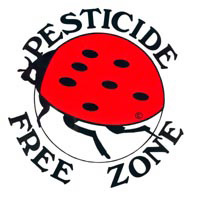"Confusion of the Immune system."
Indeed, an allergic reaction is caused by an immune system in overdrive. In other words, the body's defenses are trying too hard.
" Mast" cells are the key to allergic reactions. These immune system cells store "Histamines", leukotrienes, and other inflammatory agents.
The respiratory system includes an extremely high number of mast cells.
If you have hay fever, and you're exposed to an allergen---such as pollen---the "mast" cells overeact by releasing their inflammatory agents. These trigger swelling, itchiness, excess mucous secretion, and the spasm of muscles in the intestinal tract and airways.
Are Drugs your best choice?
Many mainstream drugs are heavily promoted through extensive advertising.. But do they get to the root of the problem---or merely mask the superficial symptoms?
Let's consider a few common anti-allergy products. Antihistamines...
Are often used to dry up a runny nose. However, a runny nose promotes drainage, an essential step in detoxifying your system. Nasal discharge carries away dead bacteria, white blood cells, mucus and other wastes.
In addition, antihistamines have been linked to undesireable side effects such as drowsiness, blurred vision, dizziness, loss of appetite, nausea,and dryness of the mouth, nose and throat.
Steroid nasal sprays addresss only the symptom. In addition, too frequent or chronic use of nasal sprays is associated with a "rebound" effect, causing nasal passages to become even more congested.
Cough Suppressants....
Inhibit another important bodily function. Coughing is the way your lungs rid themselves of phlegm and other wastes. Codeine---typically the active ingredient that suppresses coughs---has been linked to addiction and constipation.
Anti-Allergy Diet....
Vegan diet refers to the elimination of all animal products---including meat, dairy products, eggs and fish.
In a one-year trial, 92 percent of 25 patients on a vegan diet found significant relief of allergy symptoms.
In this diet, only spring water was allowed, and coffee, non-herbal tea, chocolate, sugar, and salt were eliminated.
Foods that were emphasized included lettuce, carrots, beets, onions, celery, cabbage, cauliflower, broccoli, nettles, cucumber, radishes, Jerusalem artichokes, and all beans except green peas. Potatoes were eaten sparingly.
The following fruits were eaten freely:
blueberries, cloudberries, raspberries, strawberries, black currants, gooseberries, plums, and pears. Apples and citrus fruits were not included in the diet, and consumption of grains were either reduced or stopped.
Value of omega-3 oils......
Population studies have shown that children who eat fish more than once a week have one-third the risk of developing asthma as children who do not often eat fish. This is likely due to the anti-inflammatory benefits of omega-3 oils.
Flaxseed oil is another rich source of omega-3 fatty acids





has been shown to relax bronchial smooth muscle, which makes it a natural choice for asthma symptoms.
Selenium
deficiency has been identified in asthma patients. A selenium-dependent enzyme, called glutathione peroxidase, is essential for breaking down allergic leukotrienes.
Vitamin E
blocks the development of leukotrienes, inflammatory compounds released during an allergic reaction.
COQ10
improves oxygenation and immune function.
Quercetin
is a bioflavonoid that stabilizes the membranes of mast cells---the cells that release inflammatory compounds. As an antihistamine, it works well with Vitamin C.
Vitamin C
is a powerful immunostimulant and anti-inflammatory agent.
B Vitamins
are essential for optimal immune function.
Herbs at a glance....
Stinging Nettle
has been used throughout the world for centuries to treat nasal and respiratory ailments. A clinical trial indicates that it helps relieve sneezing and itchy eyes.
Angelica species
selectively blocks the production of allergy-related antibodies (lgE)
Grape seed extract
provides bioflavonoids to block allergy reactions.
Garlic provides quercetin, a type of bioflavonoid that helps block inflammatory reactions.
Aloe Vera
inhibits the production of inflammatory compounds, thereby reducing swelling.
Ginkgo Biloba
blocks the platelet-activating factor (PAF) which has been implicated in allergies.
Licorice Root
contains glycyrrhizin. which has been shown to protect against allergy reactions.
Factors include: Toxic chemicals, cold air, exercise, infection, or emotional distress..




